- Home
- Mortimer Jackson
Alex Frost Meets The Killer Page 3
Alex Frost Meets The Killer Read online
Page 3
***
Walking along Durson Avenue after school, Alex kicked off a few dead leaves that blew onto the sidewalk. Accompanying her along the way was Amy Lawson, a girl that called herself Alex’s friend.
“Can I ask you something?” asked Amy.
“Sure.”
“Do you believe in love at first sight?”
“No," she responded. “Why? Do you?”
Amy let the question hang in the air. Then, “I don’t know.”
“You’re not thinking of Tommy Hargrave are you?”
“Why?" shot Amy. “What do you have against him?”
“He’s not your type.”
“Oh? And what is my type?”
Alex Frost, distant observer of humankind, knew that for every human being in the world there was at least type or two. And in comparing Amy Lawson with the shamelessness of Tommy Hargrave, she knew she could safely conclude, “Not him.”
“He’s nice,” said Amy.
“He’s not.”
Amy said nothing. She made no comment of Alex’s words, and showed no surprises. Why this was, Alex couldn’t tell for sure. But if she knew one thing about human beings, it was how to read their subtlest of facial expressions. And through the muscle gestures formed around Amy’s face, from the base of her forehead to her cheeks, all the way down to her chin, it was only far too clear that the emotion coursing inside her was that of discontentment.
The girls parted ways at Carlson Road. Amy crossed the street to their left while Alex turned a corner upon reaching Pilmot, continuing down a straight, narrow path.
Around her was a neighborhood of rich, white houses with rose gardens on each front lawn. The driveways were so large that they formed a curved trail to their three story homes. The cars that were frequently parked on such driveways were all just as equally affluent, and typically of the German, Swedish, or Italian variety. Some even had a few Japanese cars. And while quite a few of the residents took to such activities as driving themselves wherever they wanted to go, it was not uncommon for a Suburnian to have a chauffeur. Such are among the luxuries of being rich.
Alex observed the clean streets and the beautiful gardens of each neighborhood’s front yard, and if she had a soul, she would have admired Suburnia’s eye-feasting glamour. But since she didn’t, she thought nothing of it.
As she continued along the sidewalk, a still shadow imposed over her. It blocked the afternoon sunlight from her skin, and for a while it dimmed her path.
Far in the distance, high up in the hill, there stood a lonely black tower much different than all the houses of Suburnia. It was tall and stood like a giant, gazing down on all life that lay below it. If there was any word to describe the peculiar building, the word darkness being its defining attribute. The building was old, certainly unlike any in Suburnia.
Alex had often passed the tower as she walked back home from school. And she noticed that even when it was a sunny day outside (much like today), the tower remained as black as night, and when it was night outside, the tower was practically invisible.
But whether day or night, a murder of crows flew above the tip of the tower at all times. They cawed boisterously, as if a warning to anyone who might think to visit or trespass into the ground’s estate.
Its proprietor was a man that went by the name of Lord Henry Combermere. The citizens of Suburnia did their best never to speak of the man, or for that matter, the tower he lived in.
Everyone in town knew Lord Henry Combermere’s name to heart, but neither the children of the town nor its grown-ups ever dared to mention it without a stuttering tongue. Most of the citizens hadn’t seen the man in person (nor did they ever wish to), but they all heard the stories. Stories that frightened the daylights out of everybody, though some more than others. And those stories, often scary, never happy, all had a name to remember them by; Lord Henry Combermere.
As far as Alex knew, she was the only person that could utter the words Lord Henry Combermere without flinching. She did so once as a young child, in front of a few other children in order to prove that words alone were nothing to fear. Instead, half the town avoided her for a month because they became far too scared of her. To stop them from being afraid of her, she eventually had to pretend that the name did scare her too.
But silently, Alex had always been curious to meet the man. She’d seen an old portrait of him in a magazine once, when he was listed as one of Great Britain’s brightest and highest paid lawyers. In the portrait, his head was bald, and his features both milky pale and skinny. He wore a crisp tuxedo with a bow tie, as well as a frameless monocle on his left eye with a gold chain that went into his coat. His skin was a cross between middle-aged and old, indicating that he was either somewhere in his late forties or his early fifties.
But that was seven years ago, before he lived in complete isolation. Rumor spread that he had suffered a mental breakdown, and had been a recluse ever since. Now Lord Henry Combermere was on a very different magazine, his name now on a list entitled The Creepiest Men And Women of Great Britain. The magazine didn’t have a recent photograph of the man since no one had actually seen him since his isolation, so the article plainly said that he was simply too creepy to warrant one.
All this reputation of being a creepy man somehow intrigued Alex. While others were too afraid to discover the truth behind the man, too scared to confirm or deny some of the stories that had gone around town like a plague, Alex, a girl without a soul, hadn’t the capacity for fear, so was only left with an avid interest for the facts behind the myths.
Home can mean different things to different people. To a religious man, home can be found in serving the likes of a supernatural deity. To a scholar, who finds his purpose in learning new things, home can be in a library, where tomes of information are stored. And to a mailman, home might be somewhere out in the woods, far away from the never-ending flow of letters and vicious backyard dogs.
To Alex Frost, home was something far less spiritual, and far more tangible. To her, home was a grand, three story Victorian-style house with cherry red bricks, and a steel black fence running along the outline. Much like all the other houses around it, the massive front lawn sprung with colorful flower beds and rose gardens, none of which was actually maintained by anyone in the Frost household, but by garden workers with dry hands and very little money. For you see, in Suburnia, only very few residents took the time to take care of their own gardens. Those that did were typically of the home maker variety, but even most of them didn’t want to stress themselves with the manual labor of maintaining a yard (or washing dishes, or cooking, or doing the laundry, or cleaning the house). Mrs. Dana Frost, much like her husband Mr. Jonathan Frost, was a doctor, though they both worked for different hospitals. And because Mrs. Frost had a day job, she certainly couldn’t have spent much time tending to flowers in her yard now could she? And most certainly, not a yard as big as the one that surrounded the Frost residence.
Today however, as a break from their regular routine, both Mr. and Mrs. Frost were at home sick from some bad Indian food they had just last night. Mr. Frost’s BMW and Mrs. Frost’s Toyota were parked on either ends of the driveway, one of them silver, the other one ocean blue respectively. Parked in between them was Alex’s Mercedes-Benz, a car that she had now come of age to drive, but hadn’t because she didn’t yet have a driver’s license, and because her father liked to borrow it as often as he could.
Alex inserted her gold key into the knob of her front door. Once inside, she unsheathed her backpack and let the dead weight of textbooks, notebooks and three ring binders collapse on the marble floor. The foyer was freshly waxed, with both the floors and the hardwood stairs glimmering with the indoor luminescence that came from the ceiling. More than several paintings hung on each wall, and by the entryway was a fresh bouquet of pink tulips growing from a porcelain vase. Five steps in, there was an ornate stone medallion on the ground with a circular border and a compass rose on t
he center.
Despite the fact that her parents were supposed to be at home, Alex wasn’t sure that they were. The house was eerily quiet. At first she mused that they were probably both fast asleep. But she checked their bedroom, and they were nowhere to be seen.
“Mom?” she called out. “Dad?”
Nothing. Just sheer emptiness and silence. She checked the kitchen, the living room, and even went so far as downstairs in their basement. But they weren’t there at all. As she scoured the entire home, she tried calling them on their cell phones. Both of them rang, but there was no answer. Eventually, Alex gave up, deciding that sooner or later they would turn up. And they did, only not where she expected.
As she entered her room, Alex saw a tiny streak of wet red a few centimeters from her doorway. A thin line of liquid crimson that grew thicker and redder the further along her eyes went until finally she focused on the center of the room, and the wet line turned into a massive puddle pouring out from her parents’ slit throats. They were harmless, they were emotionless, they were lifeless. They were dead.
A man standing in her room watched the dead adults, stunted to see her just as she was to see him. He was an old-looking man with pale skin, a bald head, and dry, unchapped lips. He held a strange knife in his hand. Drops of blood escaped its razor-sharp tip, forming a ripple in an already large puddle on the floor. Alex dared a closer look at the man’s face, recognized the frameless monocle on his left eye.
It was him; Lord Henry Combermere.

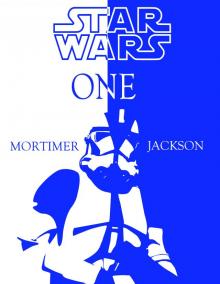 Star Wars One
Star Wars One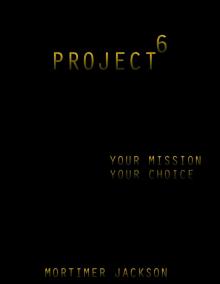 Project 6
Project 6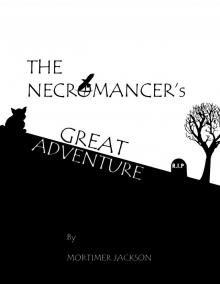 The Necromancer's Great Adventure
The Necromancer's Great Adventure The Necromancer's Reunion
The Necromancer's Reunion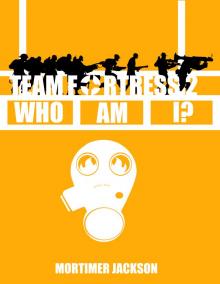 Team Fortress 2: Who Am I?
Team Fortress 2: Who Am I?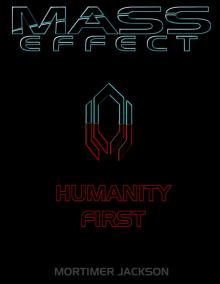 Mass Effect: Humanity First
Mass Effect: Humanity First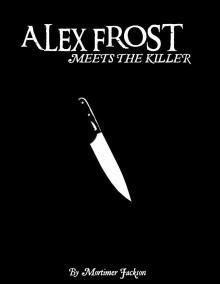 Alex Frost Meets The Killer
Alex Frost Meets The Killer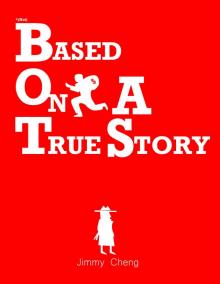 Based On A True Story
Based On A True Story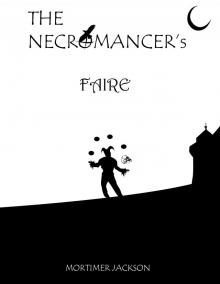 The Necromancer's Faire
The Necromancer's Faire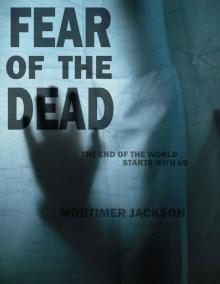 Fear of the Dead
Fear of the Dead